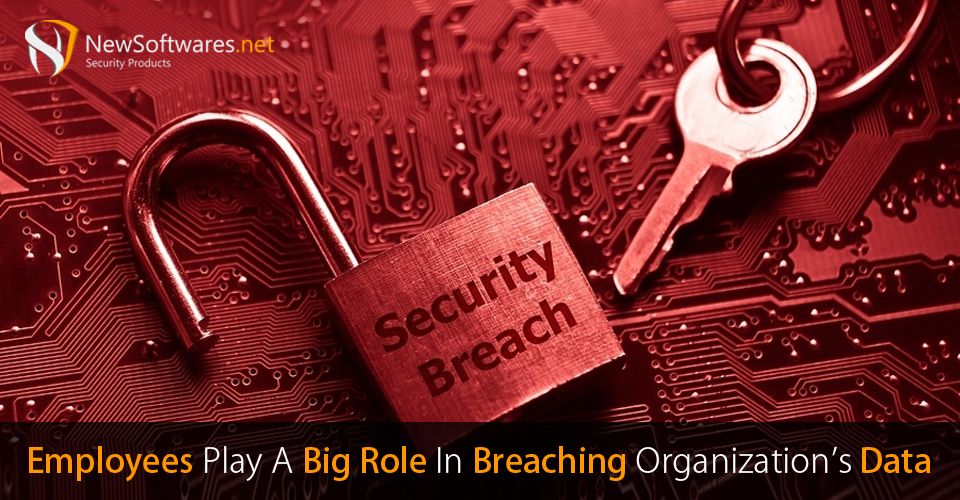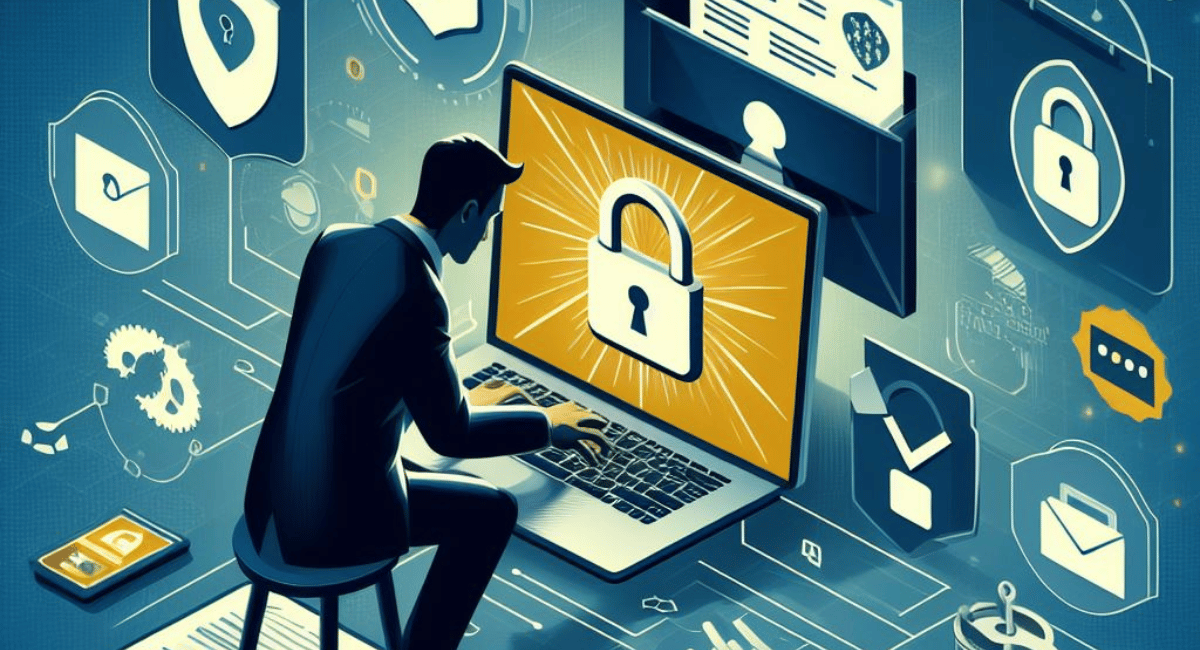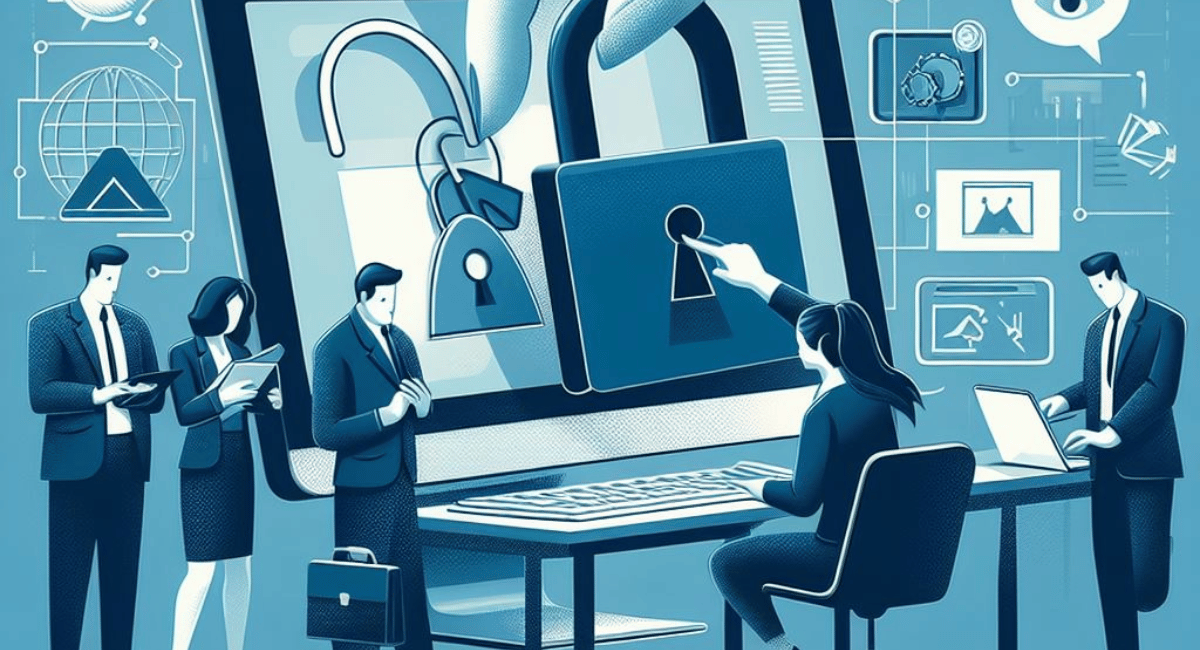The majority of the business goes through a difficult time when they experience a data breach incident. They leak sensitive data such as the personal details of their clients, their business strategies, their financial information and other similar sorts of records. These compromised pieces of information hurt companies’ profile and business operations big time. As a result, companies face huge losses and a large of numbers of the firm could not bear these wounds and shut down eventually. The reasons for these breaches are usually the own employees of the organizations. They are negligent and irresponsible that ultimately make the company suffer. Here are some of the common mistakes that these employees commit, which make companies suffer.
Employees do not realize how sensitive situation they are handling and what can be the outcome if they get leaked. Loyalty can be about the issues, however, it is assumed that the lack of attention or sheer negligence is the main reason behind it. Workers do not look to keep a strong and complex password to access data. They like to keep some generic kind of passwords that they can easily remember. The most common password in the corporate sector is ‘Password1’. It serves all the requirements of a strong password, i.e. combination of upper and lower case letters along with numbers. However, it is extremely easy to guess. It should not be a word and the combination of uppercase and lowercase letters along with numbers and special symbols should be far more complex. Otherwise, the outcome would be devastating.
USB flash drives are widely used in the business sector. Employees like to take their official work at home in order to work from his residence and increase productivity. For the purpose, employees use USB memory sticks. They know that there is hardly any sort of built in security in the flash drives. The most frightening fact is that these small data storing devices are very hard to handle. They are very much prone to getting lost or stolen, thus, they need to use these pen drives much more carefully. They do not use any sort of security measure to ensure its security. Whereas, they should use USB security software to safeguard their confidential data saved on their USB flash drive. This will keep their confidentiality intact.
Another huge problem with the insider employees is that they do not use email service properly. There is a high percentage of people that send confidential emails to wrong email addresses without any sort of protection. It is a common practice and it is a dangerous one. Another aspect of not using email services securely is that they open emails, irrespective of the sender and subject. They get trapped in the phishing plots of hackers and infect their employer’s network. These emails have tempting subjects and ask the recipient to click on the attached link or download the attached file. The attached link or file is infectious and give safe passage to hackers to your network.
Impact Of Data Breach On Employees

Data breaches can have a significant impact on employees. Employees can be affected in a variety of ways, including:
• Loss of confidential information or sensitive data, which can lead to identity theft, financial loss, and potential legal action.
• Loss of trust in the security of the organization, which can lead to decreased morale and productivity.
• Damage to the organization’s reputation, which can lead to decreased customer loyalty and decreased sales.
Example Of Employee Data Breach

An example of an employee data breach would be a malicious actor gaining unauthorized access to employee records and stealing sensitive information, such as Social Security numbers, financial account numbers, and/or passwords.
Employees A Threat To Data
Yes, employees can be a threat to data if they are not properly trained and monitored in the handling of sensitive information. Employees may accidentally or intentionally mishandle data, resulting in a data breach or other security incident.
What Is An Employee Breach?

An employee breach is when an employee gains unauthorized access to an organization’s data or systems, either intentionally or unintentionally. This could include accessing confidential information, stealing data, or using company resources for personal gain.
Things Happens If Employee Breaches Data Protection
If an employee breaches data protection, the organization may face serious legal and financial consequences. Depending on the circumstances, the employee may face criminal charges, civil penalties, or both. The organization may also face a lawsuit for negligence or breach of contract. Additionally, the organization may suffer reputational damage and a loss of customer trust.
Data Breaches Caused By Employees
According to a 2019 report from the Identity Theft Resource Center, employee negligence or malicious intent accounted for roughly 25% of all data breaches reported in the US in 2018. This is the highest percentage of any other cause of data breaches.
Main Cause Of Data Breaches
The main cause of data breaches is human error. This includes things like employees not following security protocols, weak passwords, and not patching software in a timely manner. Additionally, malicious actors like hackers and cybercriminals can also be a cause of data breaches.
Common Causes Of Breaches
Common causes of data breaches include:
1. Human Error – Weak passwords, not following security protocols, and not patching software in a timely manner.
2. Malicious Actors – Hackers and cybercriminals exploiting vulnerabilities in systems to gain access to sensitive data.
3. System Vulnerabilities – Unpatched software, outdated software, and system misconfigurations.
4. Insufficient Security Measures – Lack of encryption, authentication, and other security measures.
Percentage Of Breaches Caused By Employee Mistakes
According to a study by the Ponemon Institute, human error is responsible for up to 60% of all data breaches. This includes employee mistakes such as weak passwords, not following security protocols, and not patching software in a timely manner.
Things To Do During A Data Breach
1. Notify the relevant authorities – Depending on the severity of the breach, you should contact the relevant authorities such as the police or the Information Commissioner’s Office (ICO).
2. Investigate the breach – You should investigate the breach to determine the cause and extent of the breach.
3. Contain the breach – You should take steps to contain the breach and prevent further damage.
4. Notify affected individuals – You should notify any individuals whose data may have been affected by data breach.
Ways Employees Can Protect Company Data
1. Use strong passwords – Employees should use strong passwords that are difficult to guess and should not be shared with anyone.
2. Use encryption – Encryption should be used to protect data when it is stored and transmitted.
3. Keep systems and software up-to-date – Employees should ensure that the systems and software they use are kept up-to-date with the latest security patches.
4. Be aware of phishing attacks
First Step When Dealing With Breach Of Data
The first step when dealing with a breach of data is to identify the source of the breach and assess the extent of the damage. This includes determining what data was compromised, how it was accessed, and how long the breach had been in place. Once the source and extent of the breach have been identified, steps should be taken to mitigate the damage and prevent further breaches. This may include implementing additional security measures, changing passwords, and notifying affected customers.
Types Of Data Breaches
1. Hacking: This occurs when malicious actors gain unauthorized access to a system or network.
2. Insider Threats: This occurs when an employee, contractor, or other insider with access to sensitive data misuses or inappropriately discloses it.
3. Physical Theft: This occurs when physical devices containing sensitive data are stolen.
Defining A Data Breach
A data breach is defined as the unauthorized acquisition, disclosure, or use of sensitive information that can result in harm to the affected individuals or organizations. This includes data such as financial information, personal health information, or other confidential information.
Most Common Breaching Methods And The Tools Used
1. Social Engineering: This is a type of attack that involves manipulating people into revealing confidential information or granting access to systems. Tools used for this include phishing emails, phone calls, and other deceptive tactics.
2. Malware: Malware is malicious software that is designed to gain unauthorized access to a system or network. Common tools used for this include viruses, worms, Trojans, and rootkits.
3. Exploitation of Software Vulnerabilities
Data Breaches Affect Individuals
Data breaches can have a wide range of effects on individuals. These can include financial losses, identity theft, loss of privacy, and damage to one’s reputation. In some cases, the data breach can even lead to physical harm. In addition, data breaches can lead to a loss of trust in organizations, which can lead to decreased customer loyalty and a decrease in overall profits.
Things Happens If Data Gets Breached
If your data gets breached, it can have serious consequences. Your personal information may be stolen, which can lead to identity theft, financial loss, and damage to your reputation. Additionally, the data breach may lead to a loss of trust in the organization, which can lead to decreased customer loyalty and a decrease in overall profits. It is also possible that the data breach could lead to physical harm if the data is used to commit a crime.
Person Responsible For Data Breach
The organization responsible for the data breach is ultimately responsible for any consequences that arise from the breach. Depending on the circumstances, the organization, its employees, and third-party vendors may all be held responsible. Additionally, the organization may be held liable for any financial losses or damages that result from the breach. In some cases, the organization may even face criminal charges for the breach.
Person Responsible For Reporting A Data Breach
The organization responsible for the data breach is typically responsible for reporting the breach. Depending on the regulations in the jurisdiction, the organization may be required to report the breach to the relevant data protection authority, law enforcement, or other regulatory bodies. The organization may also be required to notify affected individuals or customers of the breach.
Data Breach Effect On Company
A data breach can have a major impact on a company. It can damage its reputation, lead to financial losses, and result in legal action. It can also lead to loss of customer trust, damage to customer relationships, and disruption to business operations. Additionally, a data breach can result in regulatory fines and other penalties.
Deal With Employee Breach Confidentiality
Employers should take steps to address any breach of confidentiality by employees. This should include a thorough investigation of the incident, as well as disciplinary action if necessary. Employers should also consider implementing a policy outlining the consequences of any breach of confidentiality, such as termination or suspension. Additionally, employers should provide regular training to employees on the importance of protecting confidential information, as well as the repercussions of a breach. Finally, employers should also consider implementing a system of regular audits and reviews to ensure that
Security Problems Created By Employees
Employees can create security problems in a variety of ways, such as by introducing malware, stealing confidential information, or sharing confidential information with unauthorized individuals. Malware can be introduced through email attachments, downloads, or web browsing, and can be used to gain access to confidential information or cause damage to the system. Stealing confidential information can include accessing passwords, financial information, or customer data. Sharing confidential information with unauthorized individuals can lead to data breaches, identity theft, and other malicious activities.
Ways An Employee Compromise Security
1. Downloading unverified software from the internet.
2. Opening email attachments from unknown senders.
3. Connecting to public Wi-Fi networks without proper security measures in place.
